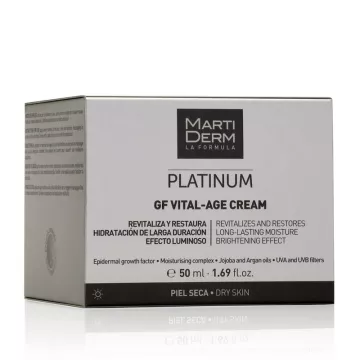
What are the signs of very dry skin?
Very dry skin is characterized by a feeling of tightness, a rough texture, and sometimes visible flaking. These symptoms can worsen with climatic changes, particularly during winter when the air is colder and less humid. Dry skin can also become red and cracked, causing itching and noticeable discomfort.
What are the main causes of very dry skin?
Many factors contribute to dry skin, including aging, excessive sun exposure, frequent use of harsh soaps or chemicals, and medical conditions such as eczema or psoriasis. Environmental factors, such as central heating and air conditioning, can also reduce air humidity and dry out the skin.
How is very dry skin treated?
Treatment of very dry skin begins with the adoption of a suitable skin care routine, which includes the use of rich moisturizers and gentle cleansers. Moisturizing immediately after bathing or showering is recommended to lock in moisture. The use of humidifiers can also help maintain an adequate level of humidity in your living or working environment. For severe cases, a dermatological consultation may be necessary to obtain more targeted treatments, such as corticosteroid or urea creams.
What ingredients should I look for in products for very dry skin?
Products for very dry skin should contain ingredients that help restore the skin barrier and retain moisture. Look for products containing glycerin,hyaluronic acid, shea butter and ceramides. These components are essential for deeply nourishing the skin and providing it with the moisture it needs.
Are there any natural remedies for very dry skin?
Yes, some natural remedies can relieve very dry skin. Vegetable oils, such ascoconut oil orargan oil, are particularly beneficial thanks to their moisturizing and nourishing properties. Aloe vera is also an excellent choice for its soothing and moisturizing properties. These remedies can be used alongside conventional moisturizers to improve skin hydration and suppleness.
How can nutrition influence the condition of very dry skin?
Skin health is closely linked to our diet. To improve the condition of very dry skin, it's crucial to incorporate essential fatty acids into your diet, such as omega-3 and omega-6, found in oily fish, nuts and certain seeds. Adequate hydration is also essential; it's recommended to drink at least 8 glasses of water a day to help keep skin hydrated from the inside out.
What impact does climate have on very dry skin?
Climate plays a major role in skin condition. Cold, dry environments can dehydrate the skin, while central heating can also reduce air humidity, exacerbating skin dryness. In summer, prolonged exposure to air conditioning and sunlight can also harm the skin. It's advisable to adapt your skincare routine according to the season, and use appropriate protection such as high SPF creams.
Can very dry skin be prevented?
Yes, it is possible to prevent dry skin by adopting appropriate preventive measures. Using moisturizers on a daily basis, avoiding long, hot baths and showers, and choosing mild soaps without alcohol or synthetic fragrances are all beneficial practices. What's more, protecting your skin from extreme weather conditions with appropriate clothing and protective creams can also help prevent dryness.
When is the best time to moisturize very dry skin?
To maximize the effectiveness of moisturizers, it's best to apply them after a bath or shower, when the skin is still slightly damp. This helps lock moisture into the skin. It's also advisable to moisturize the skin before bedtime to allow the active ingredients to work during the night, when the skin regenerates.
When should I consult a dermatologist for very dry skin?
It's advisable to consult a dermatologist if dry skin persists despite regular skin care, or if it's accompanied by redness, itching or cracks that don't heal. A healthcare professional can assess whether the dryness is due to a more serious underlying condition such as eczema, psoriasis, or another dermatitis that requires specific treatment.